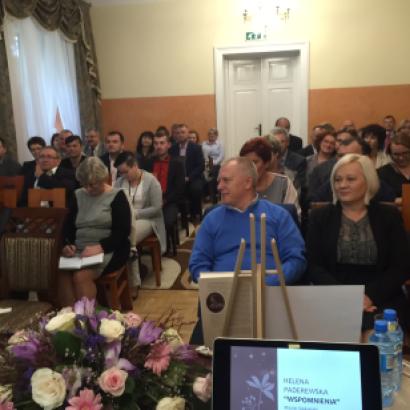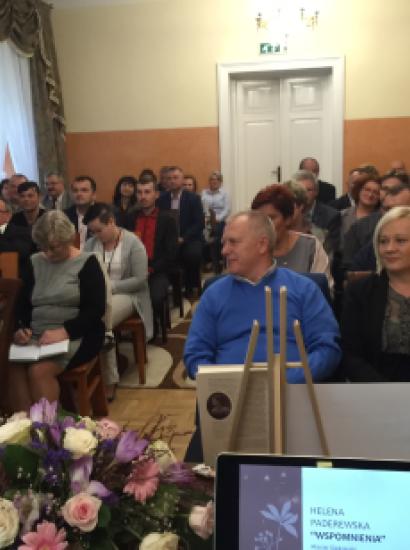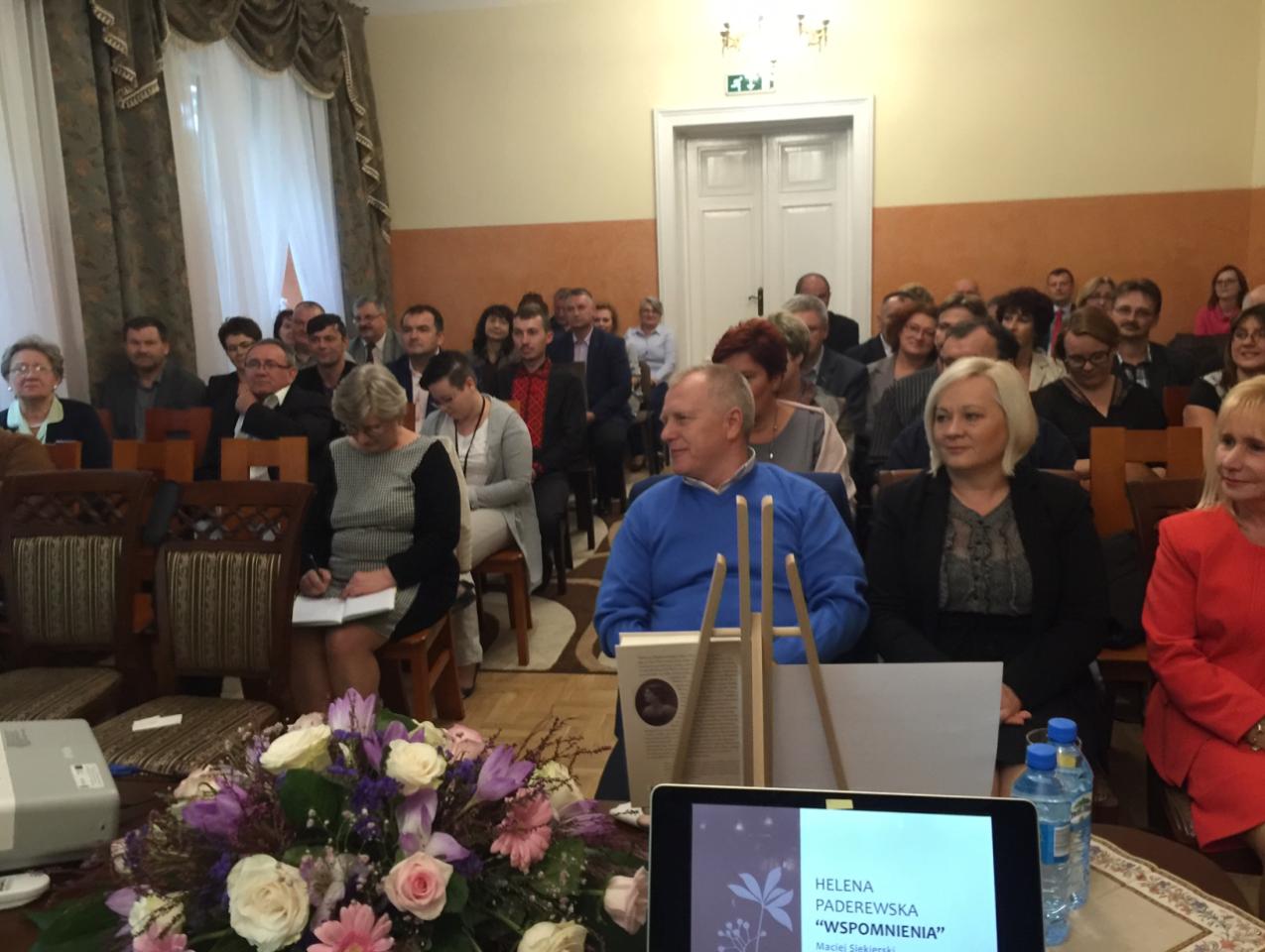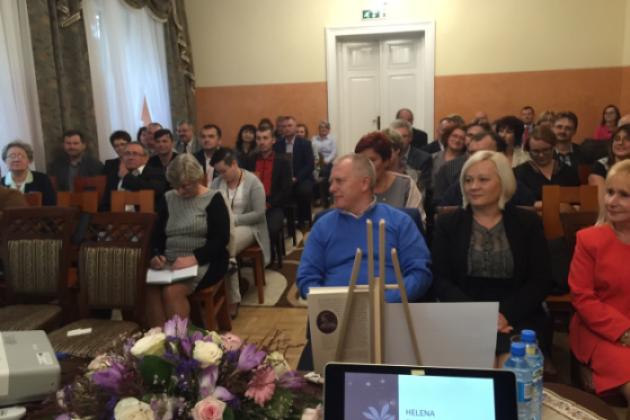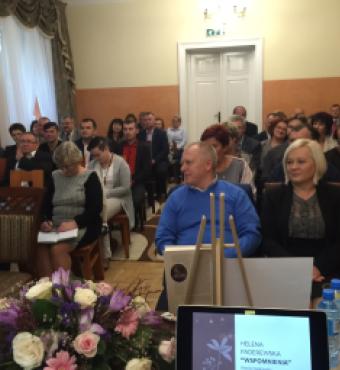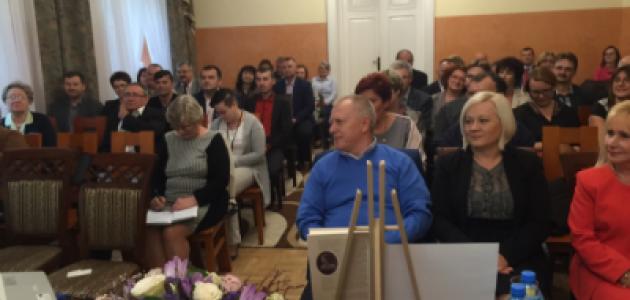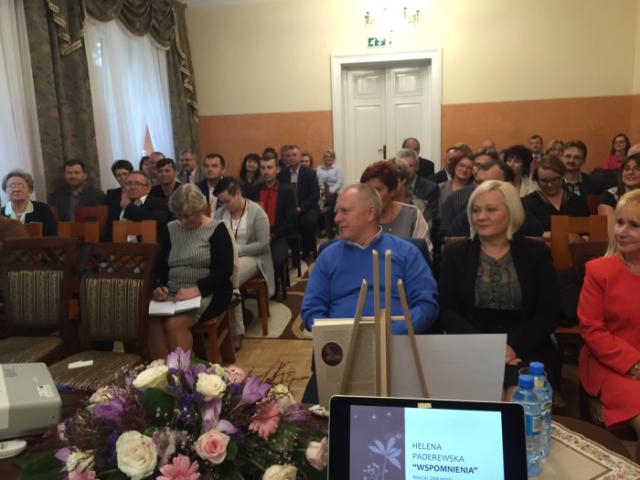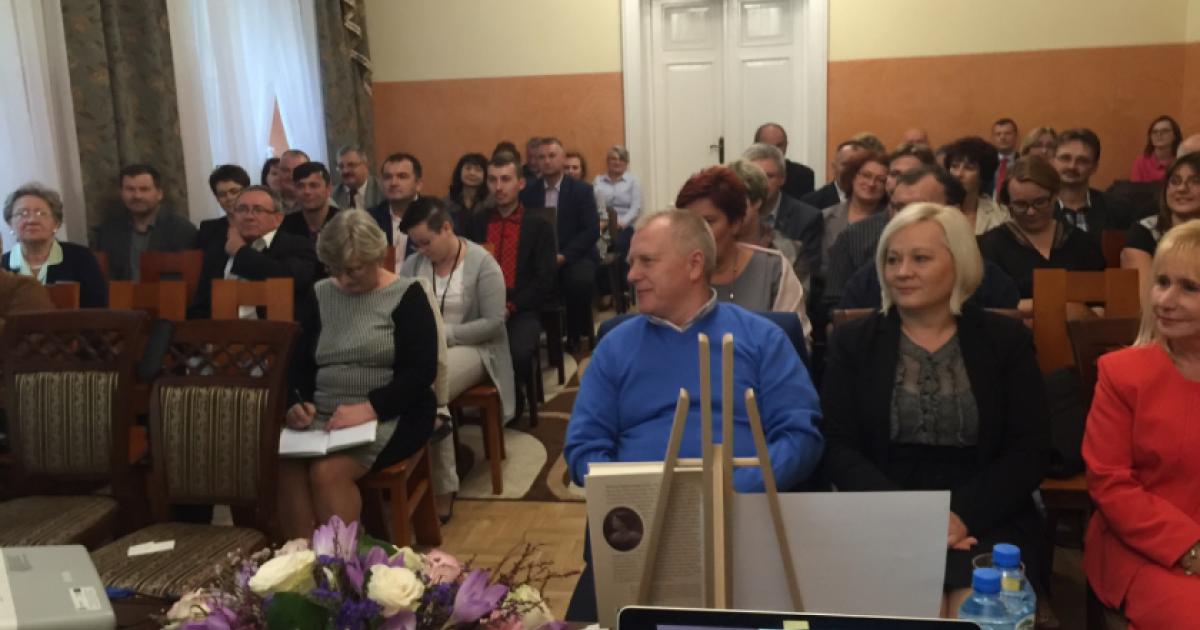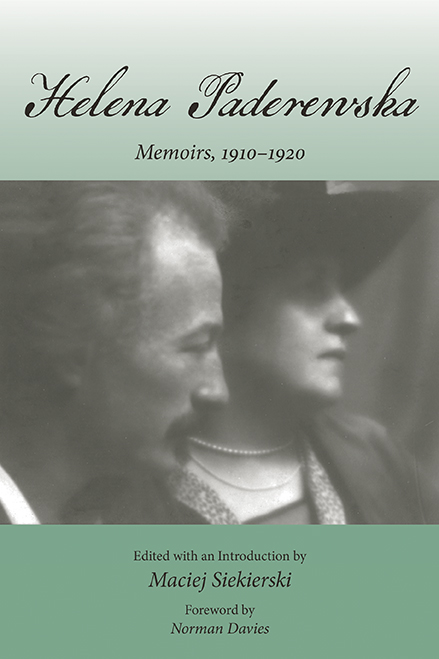
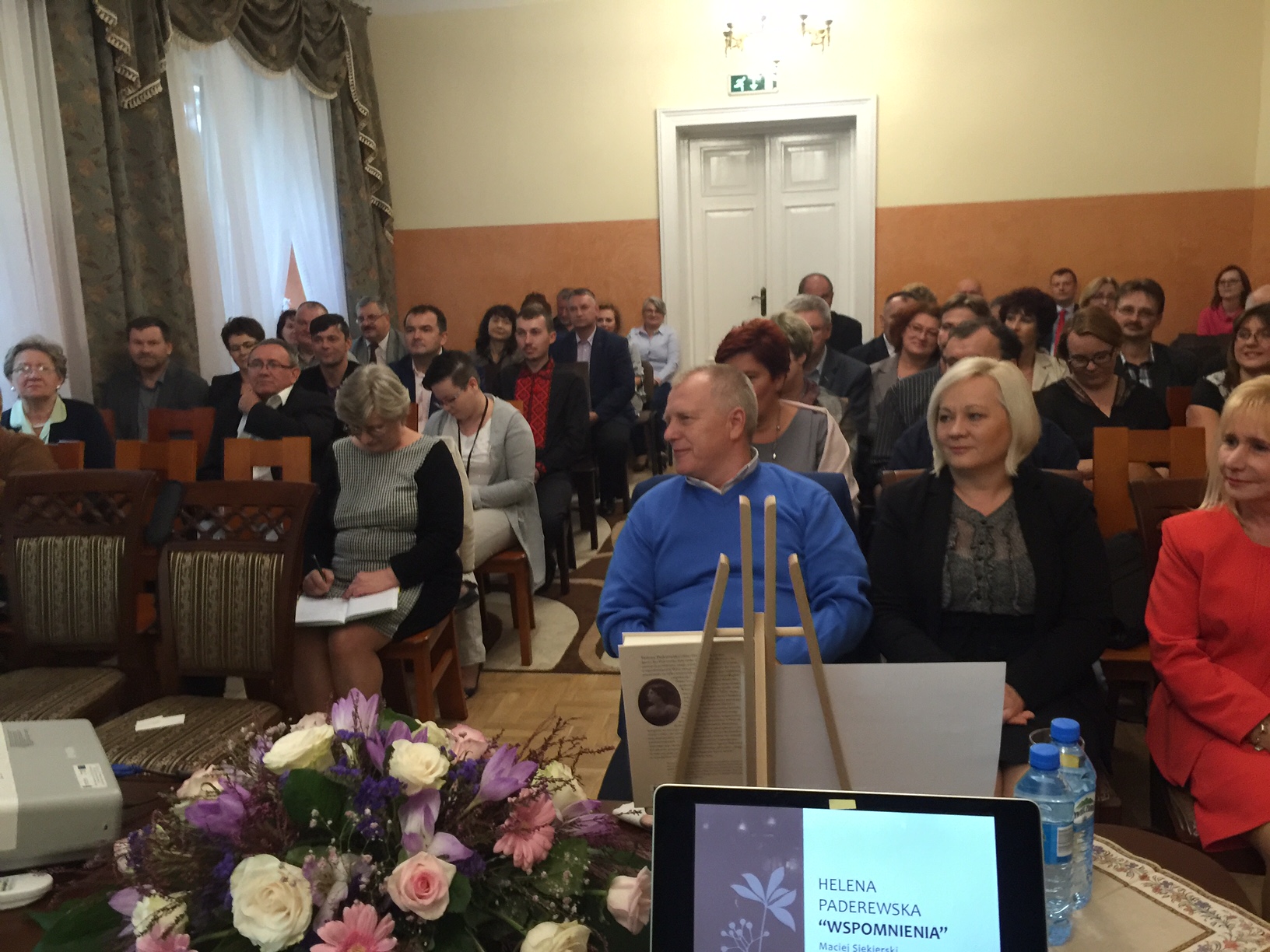
On September 23, senior curator Maciej Siekierski introduced Helena Paderewska: Memoirs, 1910-20 at Julin, a country estate in eastern Poland. This manor home was meaningful to Paderewska: she purchased it in 1920 to establish a school for “country girls, victims of the war,” who would learn agriculture as well as French and English. The estate survived World War II and remains intact today. Several of the individuals attending the book launch were descendants of the graduates of Paderewska’s school.
Paderewska’s memoirs were discovered by Siekierski in the Ernest Schelling Papers and are now a separate collection at the Library and Archives. They complement the papers of her husband, celebrated pianist Ignacy Jan Paderewski, which were acquired by Hoover in 1975. The English-language original of the memoirs was published by Hoover Press with Siekierski’s notes and commentary as well as a foreword by Oxford historian Norman Davies. A Polish translation was published at the same time in Poland, the main reason for the event at the Julin manor house.
Paderewska was born Helena Rosen in 1856 in Warsaw, the daughter of a Polish father and Greek mother. In addition to collaborating with her husband to support their native Poland, Paderewska founded and directed the Polish White Cross, which enlisted almost twenty thousand members to bring assistance to victims of war, a humanitarian effort on a scale previously unknown. Her memoirs tell this story as well as how, through his personal fame and charisma, her husband gained access to the top political leadership of France, Britain, and the United States and became an eloquent spokesman for the then-occupied country of his birth.
As well as telling the story of a talented self-made man, these memoirs also provide a woman’s perspective on international politics during the Great War and its immediate aftermath. As Paderewski’s wife and collaborator, Helena facilitated and accompanied virtually his every move and was one of only several women, among hundreds of men, in the Hall of Mirrors when the Versailles treaty was signed.




